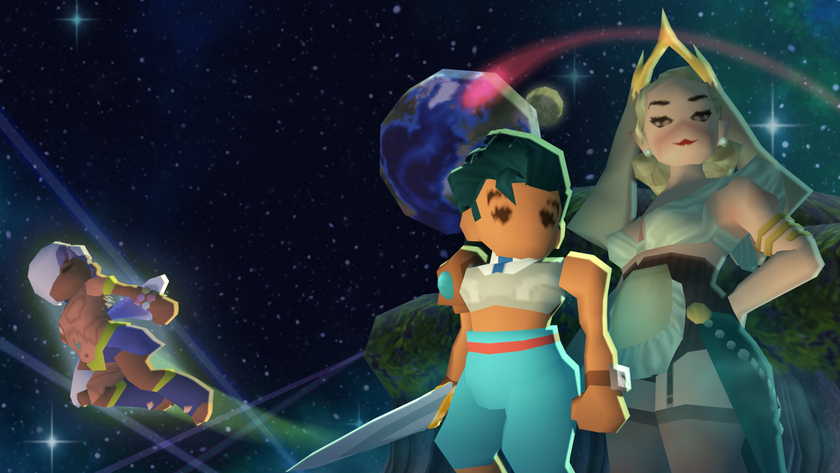Ex-Bioware writer David Gaider on representation in games
Words from the man who brought queer diversity to Dragon Age.
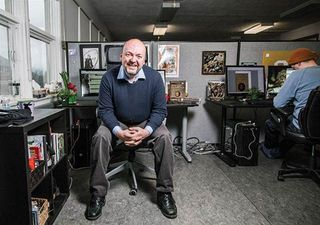
David Gaider is a well-known videogame writer and designer who worked at BioWare for seventeen years before leaving to become the creative director of Beamdog in February 2016. Despite working at a different studio for almost two years, Gaider’s work at BioWare continues to capture the attention of many, particularly due to his tireless efforts to further character diversity in the videogame industry. This was the topic most discussed at his Q&A session in the Diversity Lounge at PAX Australia 2017, where he shared his thoughts on representation in games and why it matters.
Gaider’s name may now be synonymous with the representation of diversity - particularly of queer characters - in games, but at the beginning of his talk, he suggested that at first he didn’t realise that sort of diversity was even ‘allowed’. While he was working at BioWare, another team working on Jade Empire incorporated a queer romance and it ‘shocked’ him; after this experience, he checked whether he could also introduce queer characters into Dragon Age Origins, and the rest is history.
While it’s sometimes difficult to see the progress that has been made in terms of representation, it’s positive to see how far we’ve come in the last decade. Although we’re still fighting for more representation, fewer problematic and stereotypical depictions, and less erasure of particular identities, queer folks are finding their way into more games each year.
The Dragon Age series is one of the most talked about in terms of queer representation in games. In relation to Dragon Age Origins, Gaider said that making all the queer characters bisexual at first was ‘more convenient, which is kind of terrible’ but he also said that it was a time where he - and audiences - simply ‘took what he could get’. There weren’t many options, so having queer pathways of any kind was a step forwards. In Dragon Age 2, queerness was made more prevalent than it was in Dragon Age Origins, but it still heavily relies on bisexuality; this is something Gaider said he was uncertain about, as it felt like a decision of convenience rather than a deliberate choice.
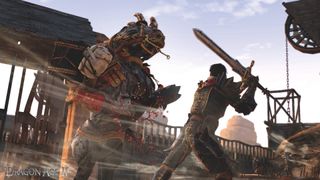
When it came to Dragon Age Inquisition, Gaider deliberately attempted to incorporate better ‘minority content’, as he describes it. He originally aimed for an even split of two gay romance options, two lesbians, and two bisexual characters - although he paused to clarify that, although Josephine is bisexual, Iron Bull ended up being pansexual. One of the most-loved queer characters in Dragon Age Inquisition is Dorian, who Gaider said was the most personal part of himself that he has ever put into a game.
BioWare’s audience studies have found that this ‘minority content’ was appreciated by audiences. Gaider emphasised here that when discussing the importance of representation in games, using the statistics around the number of individuals who appreciate the content is better than relying on the percentage of people who use or access the content; more people appreciate that there is an option than those who actually use that option.
In fact, as much as people appreciate the diverse romance options in the Dragon Age series, Gaider told us that this wasn’t the audience these games were marketed towards. It was assumed that people interested in the romance aspects of Dragon Age would find the games themselves, and instead they were marketed more directly as ‘action’ or ‘action-adventure’ games. But queer folks seeking representation are an underserved market, Gaider said; he is excited to see that indie and double-A developers are starting to notice this, and are incorporating more queer content to fill this gap.
Sign up to the 12DOVE Newsletter
Weekly digests, tales from the communities you love, and more
But the ‘action-adventure’ focus of the Dragon Age series is easy to forget when you work as a researcher of queer representation, and I’m not the only one. ‘You’d think that was all I did, but there was also the plot,’ Gaider laughed. He said that he would love to talk at events about more than just diversity, as he also loves speaking about writing and narrative design - and was pleased to have the opportunity to give a talk on worldbuilding at Game Connect Asia in the days before PAX. But still, Gaider mused, ‘Diversity is such an important topic,’ and so he does still want to talk about it. He told us that really he’s quite ‘pragmatic’ in his approach: adding diversity just means telling more interesting stories.

Despite no longer working at BioWare, Gaider obviously still has a lot of positive feelings towards his time there and the team he worked with. When asked what he was most proud of, he struggled to separate what he did from what his team did, feeling proud that they all tackled issues of diversity together as they arose and ‘championed’ diversity publicly. He was proud of each of them for standing by the individuals on the team who were attacked by movements like GamerGate for their outspoken opinions in favour of diverse representation.
Gaider laughed as he told us that the team didn’t spend all of their time thinking about diversity, as some people on the internet sometimes imply, but they did use ‘checkpoints’ to reflect on where their game was at, and this included checking in on the diversity of the game so far. At one of these checkpoints, Gaider said that the team figured out that only 15% of the voice-acted lines that had been written were being voiced by women. At first, they were all confused by this number - as they had a large number of women in significant roles - but soon they realised it was due to every writer unnecessarily making a majority of their supporting characters men. Gaider said that it was easy to fix, but it wouldn’t have been noticed if not for these checkpoints.
These days, Gaider said, ‘we just didn’t think about it’ is no longer a defence. There are enough discussions of diversity and diverse practices that developers should know what to check for, and they need to set some time aside to ensure diversity issues - like this voice acting example - don’t get shipped. He also said that, while ‘allies are great and all’, he believes the game industry should be prioritising ways to support minorities in getting work within studios and ‘amplifying their voices’. As he put it, ‘We need to change the industry, not just tell it what to do.’
There are many reasons, Gaider feels, that triple-A developers currently avoid adding diverse representation, including queerness, into their games. He referred to it as ‘Pandora’s box’ - studios are ‘incentivised to do nothing’ because in this case, the worst that happens is they get ‘lumped in’ with the others. As soon as they do anything, they open the box and receive messages ranging from ‘You are politicising the game - why?’ to ‘Why aren’t you doing more? Why are you doing it wrong?’
These days, Gaider said, ‘we just didn’t think about it’ is no longer a defence.
He emphasised here that he understands why audiences sometimes criticise or question developers who have attempted to incorporate diversity into their games: approaching somebody who is trying means there’s a better chance they’ll listen. And for this reason, Gaider and his team received all sorts of criticisms.
For example, people seeking representation of asexuality or polyamory - which are both incredibly underrepresented - have approached Gaider before, asking why he hasn’t done more to represent these identities or relationships. He emphasised that it’s not because he doesn’t want to, but there are some logistical issues that he is yet to overcome. For one, lesser known identities need to be explained in-game to be explicit, which can be tricky; he tends to limit himself to one lesser-known identity per game to avoid too many of these difficult-to-navigate conversations. This is an interesting insight; however, I’m reminded of characters like Cole from Dragon Age: Inquisition who many players thought was asexual until this was explicitly disproven in DLC. If Cole could convince audiences he was asexual accidentally, I’m certain the writers of the series could have included a deliberately ace character if they wanted to.
Additionally, Gaider emphasised the difficulties of creating systems to represent monogamous relationships, let alone a system that is reactive enough to accurately represent polyamorous relationships. Relationships are difficult to represent in games because they are too complex for valuable feedback systems; it’s hard to tell a player that an NPC is feeling a particular way without that NPC explicitly telling them, ‘I am in this mood, and it’s because…’ In polyamorous relationships, there are even more variables involved, which need to be explored in the dialogue between characters. Conversations would need to change based on who the player-character is dating, what the relationships between those NPCs are like, whether there have been any breakups or other relationship events, and the order that these different events take place. This would mean different lines of dialogue being written, recorded, and possibly animated into cinematics for each of these different eventualities. Again, while disappointing, at least these insights demonstrate that Gaider is not only thinking about incorporating these underrepresented identities and relationships into games, but also how they can be represented in a way that isn’t superficial or tokenistic.
Gaider ended his talk with a number of accessible recommendations for developers. Firstly, he said that he would like more developers to think ‘What’s one thing I can add in?’ He emphasised that not every developer needs to add every possible form of diversity into every game, but he does feel that each developer could be doing a little bit more. Change will be gradual, and it will occur across the industry; it won’t happen due to one individual game. And he is optimistic - although triple-A studios still seem to avoid incorporating queerness into their games overall, Gaider mentioned that he has been ‘surprised’ to see a few queer characters and relationships slipped into triple-A games recently with very little fanfare.
Secondly, Gaider suggested that developers avoid putting sex scenes at the end of romance arcs, so that - if sex is involved - it feels less like a reward for successfully dating a character and more like part of their ongoing relationship. This advice is based on how his own approach to writing relationships has evolved, as a way to avoid in-game relationships seeming too gamified.
Change will be gradual, and it will occur across the industry; it won’t happen due to one individual game.
While further describing his own practice, Gaider recommended that developers think about the sexuality of characters early, but not first. It’s important to think about sexuality early enough that it is a consideration throughout the narrative design process, but it’s also important that characters are developed in terms of other traits first so that writers avoid inadvertently relying on stereotypes or tropes associated with identities. This was a key difference between how characters were developed for Dragon Age 2 and Dragon Age Inquisition, and hopefully improved the authenticity of representations in the latter title.
Lastly, Gaider made it clear that anybody can incorporate diversity into their games. He highlighted the difference between writing, for example, ‘the lesbian experience’ versus simply including a lesbian character into a wider narrative; while the former should be written by somebody who has had that experience, the latter can be written by anyone. There are plenty of opportunities for incorporating diverse people as NPCs or into crowds that don’t require you to have shared the experiences of the character in your own life. Either way, Gaider recommended using sensitivity readers and consultants to ensure there haven’t been any major oversights in the construction of the character.
David Gaider’s one-hour talk in the Diversity Lounge was hugely informative, and gave valuable insight into his approach to incorporating diversity into the stories he tells. His passion for creating interesting and engaging narratives by representing the experiences of diverse people was evident, and I look forward to seeing how this shines through in his future projects.
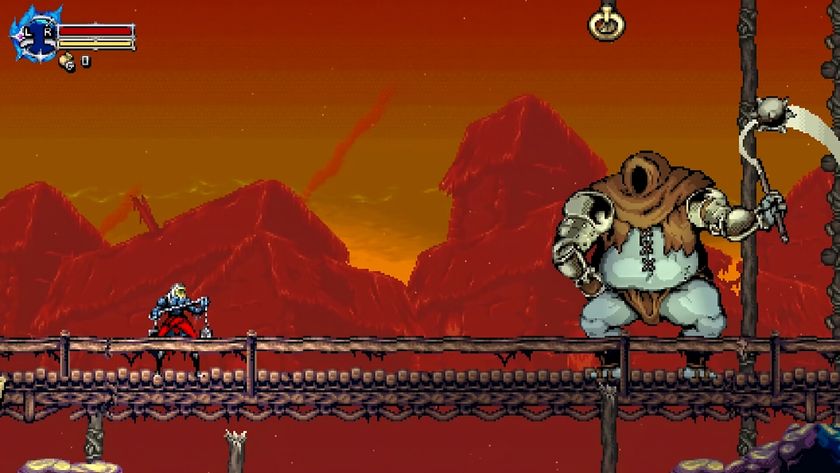
And you thought Hollow Knight: Silksong is late – 37 years in the making, this retro Metroidvania has a whip-smart Steam Next Fest demo that's as Castlevania as it gets
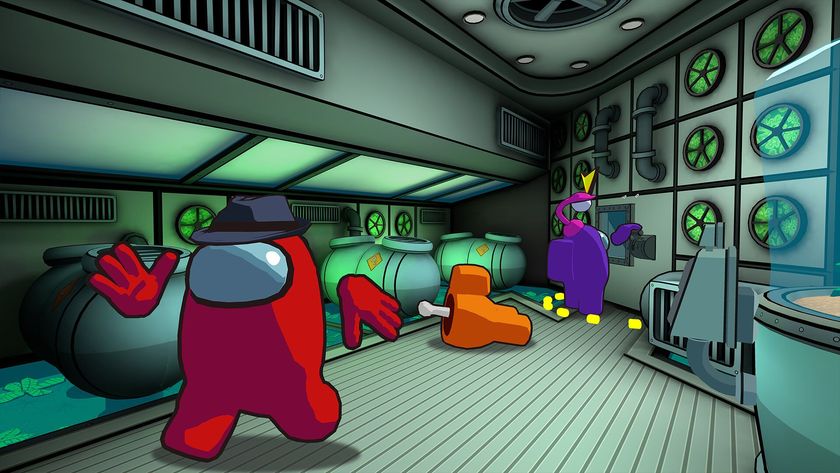
Among Us is popping off all over again thanks to a 3D version of the viral hit that's climbing up Steam Next Fest's charts
Most Popular



